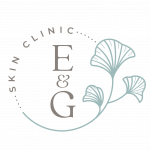The Pros and Cons of Self-Tanning for Skin Health
A sun-kissed glow has long been a beauty staple, but self-tanning has become a popular alternative with growing awareness of the dangers of UV exposure. While it offers a safer way to achieve bronzed skin, there are benefits and drawbacks to consider. Here, we explore the pros and cons of self-tanning and how it affects your skin’s health.
The Benefits of Self-Tanning
Avoids UV Damage – One of the biggest advantages of self-tanning is that it eliminates the need for prolonged sun exposure. UV rays are known to accelerate skin aging and increase the risk of skin cancer, making self-tanners a much safer choice.
Instant Glow Without Sunburn – Unlike traditional tanning, which requires hours in the sun, self-tanners provide an immediate bronzed look without the pain and peeling associated with sunburns.
Even Skin Tone – Many self-tanners contain skin-nourishing ingredients that help even out skin tone and reduce the appearance of minor blemishes or imperfections.
Moisturising Properties – Many modern self-tanners are formulated with hydrating ingredients such as aloe vera and hyaluronic acid, which can contribute to smoother, healthier skin.
Safe for Year-Round Use – Regardless of the season, self-tanning allows you to maintain a natural glow without waiting for summer or exposing yourself to harmful UV rays.
The Drawbacks of Self-Tanning
Potential Skin Irritation – Some self-tanning products contain DHA (dihydroxyacetone), the active ingredient responsible for darkening the skin. While generally safe, it can cause irritation or allergic reactions in individuals with sensitive skin.
Uneven Application – Achieving a flawless tan requires skill and proper preparation. Without exfoliation and even application, streaks and patchiness can occur, making the tan look unnatural.
Temporary Results – Unlike sun-induced tans that can last for weeks, self-tanners typically fade within a few days as the skin naturally sheds dead cells.
Chemical Exposure – While self-tanners are considered safer than UV exposure, some contain synthetic fragrances and preservatives that may not be ideal for those with sensitive or reactive skin.
Limited Sun Protection – A common misconception is that self-tanned skin offers UV protection. In reality, these products do not contain SPF, meaning you still need to apply sunscreen when going outdoors.
Finding the Right Approach for Your Skin
If you’re considering self-tanning, choosing high-quality products and following a proper skincare routine is essential. At E&G Skin Clinic in Edinburgh, we understand that everyone’s skin is unique. Our experts can guide you toward the best self-tanning products suited to your skin type while offering professional treatments to enhance and maintain your skin’s health.
Whether you prefer self-tanning at home or professional spray tans, it’s important to balance aesthetics with skin care. A safe and effective skincare routine will help you achieve a natural, healthy glow year-round. If you’d like tailored advice, feel free to visit us at E&G Skin Clinic, where we prioritise your skin’s well-being.

